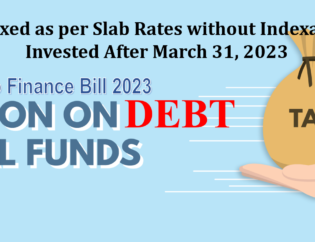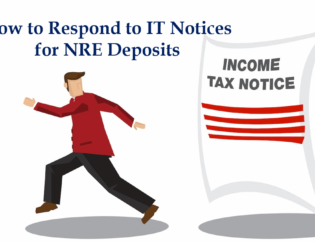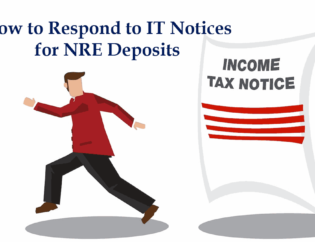The Budget 2020 has made many changes including how a person is taxed in India. All the important changes proposed in the Budget 2020 are summarized and analyzed for easy understanding as follows.
1. Definition of Resident Changed:
As this is very important and critical change that requires detailed analysis, the same has been explained in detail in a separate blog at Budget 2020: Resident definition changed – NRI can be taxed as a Resident
2. Optional Tax Slab and Tax Rates:
To simplify income tax return preparation and filing, an optional mechanism is proposed which reduces income tax for persons who may not be claiming various deductions and exemptions. The proposed income tax slab and tax rate is as per following table:
|
Total Income |
Existing |
Proposed (Option) |
|
0 – 2,50,000 |
Nil |
Nil |
|
2,50,001 – 5,00,000 |
5% |
5% |
|
5,00,001 – 7,50,000 |
20% |
10% |
|
7,50,001 – 10,00,000 |
15% |
|
|
10,00,001 – 12,50,000 |
30% |
20% |
|
12,50,001 – 15,00,000 |
25% |
|
|
More than 15,00,000 |
30% |
A tax payer may decide whether to be taxed under existing rates or the proposed rates. However, he/she may not be able to claim about 70 deductions or exemptions including leave travel allowance, house rent allowance, standard deduction (50,000), tax saving investments (80c-150,000), NPS (50,000) medical premium, loss on house property on interest on housing loan (200,000) and many more.
It turns out that the new rates benefit anyone having income over Rs. 15 lakhs and claiming deductions or exemptions less than Rs. 250,000. If income is about 10 lakhs and claiming deductions or exemptions over 187,500, he/she would be better off with existing tax structure.
3. Dividend Distribution Tax removed
The Dividend Distribution tax has been removed. So, instead of companies paying tax on distribution of dividends, the dividend is to be included in the income of the shareholders, who will include the dividend income in his/her income tax return and pay tax on the slab rates.
This is a welcome step for NRIs as dividend distribution tax was on Companies and was not eligible for credit under Double Tax Avoidance Agreements. Now, they will receive gross dividend and claim the income tax on dividend as credit under DTAA.
4. Cost of Acquisition of property before 1/4/2001 changed
The budget restricted the fair market value as on 1/4/2001 for calculating indexation on sale of immovable property. Currently, cost of any immovable property acquired before April 1, 2001 was calculated as the Fair Market Value (FMV) as on 1-4-2001 or actual cost at the option of the tax payer. And, the FMV could be a lot higher (sometimes in multiples) than the stamp duty value. The budget introduced the cap on FMV as it cannot exceed the Stamp Value as on April 1, 2001
Any seller would not be able to get higher valuation as on April 1, 2001 to increase the cost of acquisition and as a result get higher indexed cost of acquisition and reduce long term capital gain. However, the property can be sold with higher FMV than stamp duty as on April 1, 2001 before March 31, 2020.
5. Tax Collected at Source (TCS) on Overseas Remittances:
The budget introduced TCS on remittance out of India of Rs. 700,000 or more under Liberalized Remittance Scheme (LRS) of 5%. However, if the remitter does not have PAN or Aadhaar, the TCS would be 10%
This provision affects NRI’s relatives who are sending gifts or any other payments to them under LRS of RBI. Now, any Indian resident transferring money out of India would need to pay 5% (10% if no PAN / Aadhaar) more on the amount remitted as TCS. The amount will be credited as tax paid by the remitter and reflected in the Annual Information Statement and he/she will pay only remaining tax as advance tax or claim refund of tax in case of overpayment.
6. Income from Mutual Funds
Any income from mutual fund – dividend or capital gain of Rs. 5000 or more would be subject to TDS @ 10%. Finance Bill 2020 introduced a new section for TDS on any income from mutual fund for resident investors. Until now, TDS on any income was applicable to only NRI investor. With dividend income becoming taxable, the Government introduced the TDS provision. They also clarified that 10% TDS would not apply to capital gain income.
Mutual fund has been attractive due to non-taxability of dividends. Now to streamline the tax collection at source, the investor would feel a pinch as they would get 10% less money on hand. He/she would have to pay additional tax as advance tax. Tax on capital gains continue to be outside of TDS and an investor would pay tax only as advance tax.
7. Other Important changes related to Investments:
(i). Deposit Insurance Cover – 1L to 5L
The budget proposes to increase the deposit insurance (guarantee) of bank deposits from Rs. 1 lakh to Rs. 5 lakh per person.
(ii). Cost of Segregated Portfolio and main portfolio
When a mutual fund scheme is segregated, the unit holders come to hold same number of units in two schemes –the main scheme and segregated scheme. The budget proposes to include period of holding of original units in the main portfolio for calculating the period of holding of segregated portfolio. Also, the cost of segregated portfolio would be calculated as a proportion of NAV transferred to segregated portfolio from the main portfolio immediately before the segregation and applying the same to the cost of acquisition of total portfolio. The cost of the acquisition of the original units in the main portfolio will be reduced by the cost of acquisition of the segregated portfolio.
(iii). From Form 26AS to Annual Information Statement
Form 26AS included information related to income tax paid or deducted/collected or refunded only. However, the income tax department collects a lot of information about financial transactions including sale or purchase of immovable property, shares, mutual funds etc. The annual Information Statement would capture all these information and upload the same in the respective accounts for better understanding of information in possession with the income tax department and also to pre-fill the income tax return to be used for filing income tax return and calculating correct tax liability.
8. Other changes:
- Tax Payer’s Charter to be incorporated in the Income Tax Act to ensure fairness and stop harassment of taxpayers.
- Eligibility period of 3 consecutive years of Tax holiday for start ups within 7 years, extended to 10 years and benefit will now be available to startups with turnover of upto 100 crores, also increased from 25 crores.
- Taxability of ESOP for startup employees is changed from exercising options to 5 year after exercise or sell of shares or termination of employment, whichever is earlier.
- TDS by e-commerce operator @ 1% on sale by participants through their platforms.
- Limit extended for additional deduction of interest on affordable housing scheme by 1 year
- Threshold for Income Tax Audit increased from turnover of 1 crore to 5 crores for anyone having cash receipt less than 5%.
- Due date of filing income tax return is extended for tax payers subject to audit as well as all partners of a firm subject to tax audit
- Vivaad se Vishwas scheme launched for tax payers to pay only disputed tax and get full waiver of interest and penalty until March 31, 2020 or pay some additional amount by June 30, 2020.
- While income tax assessments are carried out electronically, now appeals would also be disposed through e-appeal scheme.
- Instant PAN to be issued through Aadhaar card information









Dear Sir,
It is not clear to me TCS deduction of 5 % under LRS. If the amount being remitted is tax paid amount in savings will it not be double taxation. Or is it that the amount paid as tax in LRS can be shown against the tax due for that year for other
taxable in come in that year.
If it is a remittance tax of 5 % then one cannot get any tax relief for the tax due on other income .
Can you please make it little more clear so that common can understand.
Please note TCS is not tax. It is just to make sure persons making payment out of India is a tax paying resident and is his own money and not someone else. Any TCS collected will be reflected as income tax paid and the remitter would be able to adjust the same against its tax liability. For example, if a resident remits Rs.1 Cr as gift to son/daughter, TCS @ 5L will be collected additionally. If his tax liability is Rs. 3L, he would not be required to pay advance tax and would get refund of Rs. 2L on filing of income tax return. Thanks.
Dear Jigarji,
I would appreciate if you kindly let me the following,
the person is super senior citizen i.e he is 80 plus and he is resident in India and his income for ay 2020-21 is more than 5L where he can invest in order to lower his tax liability.
Thanks
I would recommend 5 year 80C Bank FD for him due to age. He can also invest in Life Insurance, NSC, ELSS mutual fund but I would recommend Bank FD. Thanks.
Hi Jigar,
Can you please elaborate on this point -This is a welcome step for NRIs as dividend distribution tax was on Companies and was not eligible for credit under Double Tax Avoidance Agreements. Now, they will receive gross dividend and claim the income tax on dividend as credit under DTAA.
I have investments in India and my portfolio is NRI-NRO-non repatriable. I am receiving dividends this year(April 2020-March 2021) with TDS of 20.8% Earlier years, I would declare my India dividend as dividend income while filing my US taxes. I also file my India taxes each year.
Is there a way to claim TDS on dividends while filing taxes in India?
If claiming TDS is not possible. do I still need to pay taxes on dividends while filing US taxes? That would be double taxation. May you please clarify.
thank you,
Sourav
PS: And by the way, just wanted to state that your blog is very informative and helpful. Please continue enlightening the community.
1. Yes, you can file the tax return in India and claim the TDS deducted as tax paid and if your tax payable is less than the TDS deducted, you would be able to get the refund.
2. When you file your US tax return, you will be able to claim the Foreign Tax Credit for the tax you pay in india. So now, there won’t be any double tax on the dividend income. Thanks.